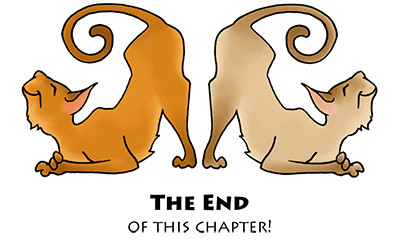The Guide to Getting It On (3 page)
Read The Guide to Getting It On Online
Authors: Paul Joannides
Tags: #Self-Help, #Sexual Instruction, #Sexuality

Dear Paul,
In my intro psych class, they wanted us to take a detailed survey about sex. My boyfriend and I really like sex, but I didn’t feel comfortable doing the survey and left most of it blank. Does this mean I’m weird? —Athena from Mt. Holyoke
Dear Athena,
My own suspicion about sex surveys was born two days before I took my first intro-to-anything class in college. Perhaps some background will help.
I had spent my first 18 years in a small town that didn’t have a lot of stop lights or two-story buildings. It did, however, have as many bars as churches, and girls who feared a life of loneliness and isolation if they didn’t get knocked-up by the end of high school.
So I had spent the totality of my life in the nape of America’s red neck. Then, I suddenly found myself as a freshman at UC Berkeley, where there were Krishnas instead of cows, and “weed” was no longer the hallmark of poor pasture management.
Back then, I had no idea that the nice, neanderthal-looking guy who lived upstairs in my dorm would become a founder of Apple computer, or that I would someday write a book on sex that people like yourself would have on their shelves.
What I did know is that I had to show up at the student health center to take a physical exam. That’s when I became one of hundreds of guys in their boxers or briefs, waiting in a mile-long line to pee on command. First, however, we got to stand in front of a row of doctors who pulled our briefs down and reported what they saw to the young nursing students who were sitting next to them with charts in their laps. Not being ones to take it on faith, the young nursing students looked up and checked as well.
When I got back to the dorm there was a thick survey sitting on my desk. It wanted to know about my personal sexual habits. Being barely a man and just two days in the big city, I wasn’t ready to confess “how many times I masturbated during the past week.” But I did know that no matter how far from home you are and no matter how fast of a lane you have fallen into, what’s personal is personal, and nobody has a right to take that away from you. So, like you, I left the survey blank.
As I think back over the sex survey from my first few days in college, I am reminded of how complex and personal sex is for some of us, as it seems to be for you. At the same time, I appreciate that your roommate might be uploading videos of herself having sex on xhamster. And what about all of the people who post intimate details of their private lives on Facebook?
Are you “weird?” Perhaps. But I suspect that’s true for many of us.

CHAPTER
2
Romance

R
omance is something thoughtful that you do for someone you love. It’s the Gorilla Glue that holds relationships together. It’s lube for above the belt instead of below.
Romance can be as simple as leaving a note on the refrigerator that says “I love you” or giving an unexpected hug. It can include heroic gestures like helping your partner do his taxes or scouring the tile in her skanky-looking shower or taking a whole day to organize a lover’s
Nightmare-on-Elm-Street
closet.
Contrary to what the ads and commercials tell you, romance does not need to cost a thing. There’s not a single thing about being romantic that should require the folks at MasterCard to increase your credit limit. You are deluding yourself if you think that the only way you can be wildly romantic is by single-handedly jumpstarting the economy.

Romance vs. Sex
Try not to assume that romance will result in sex. Romance resides in a special universe somewhere between Platonic love and carnal lust. Romance can evolve into sex, and the sex can be wonderfully romantic, but it’s just as possible to have a perfectly romantic evening and end up in bed alone. When that happens, you do what the rest of us have done since the beginning of time: you romance your penis yourself, or you pull out your vibrator and caress the front of your thong with it.
Romance When You Are Dating as Opposed to When You Are Married
Getting the oil on your partner’s car changed and having it washed can be a romantic thing if you are dating. However, if you are married, your partner might say “That’s nice,” but it’s one of those things that’s migrated from the romance column to being just another job on your to-do list.
On the other hand, when you were dating, going to a movie might not have been particularly romantic, given how you would do it at the drop of a hat a couple of times a week. But once you have kids, going to a movie involves hiring a baby sitter and picking her up, getting dinner made for the little ones, and finding some way to defy the laws of parenting and get to the theater on time. By virtue of the wedding ring and your most excellent breeding skills, going out to see a movie goes from routine to romantic.
Likewise, your partner may have loved receiving stuffed animals before marriage, but after having children, the population of stuffed animals in your household will have reached critical mass. She’s thinking, “How do I sneak this bag of stuffed animals to Goodwill without little Ally having a meltdown?”
Married or not, getting a lover her favorite chocolate is almost always romantic regardless of the number of notches on the side of her uterus. Chocolate works on the same part of the brain as cocaine and heroin.

Getting Your Romance Meters in Sync
When it comes to being romantic, people can have very different styles. If the person you are lusting over feels like a keeper, try to figure out what is romantic to him or her. This might be different from what’s romantic to you.
While things that make a big splash could be what catches your romantic eye, your partner might prefer the understated. Just because his or her romantic style is different from yours doesn’t mean you can’t be wonderfully romantic in each other’s eyes. Over time, you should make a mental list of things your partner goes “Wow!” over. That way you won’t be caught scratching your head when the need for romance arises.
It can be harder to connect with a partner romantically when one or both of you feels overwhelmed. Romance during stressful times can require a different approach. It might include turning into a rock your partner can lean on or quietly taking up the slack in various ways. If your partner has a huge project coming up or is dealing with a gnarly life stressor, plan ahead for things you can do to help make it better, although being supportive doesn’t always require “doing” something.
Reliablity vs. Excitability: The Dilemma of Romance in Long-Term Relationships
In long-term relationships, all the romantic gestures in the world are meaningless if you aren’t trustworthy or don’t do your share of the work. Sending an unexpected card won’t get you far if you didn’t do the chores that your partner was counting on you to do. For romance to work in a long-term relationship, it helps if both of you are reliable and do as you say. Then, the kind and thoughtful gestures have a footing to stand on.
On the other hand, when you hear people in long-term relationships say that the sparkle has gone in their relationship, it’s possible they have worked so hard on being reliable that they have forgotten about the little gestures that help make a relationship hot.
Consider some of the sexually exciting moments you had during the first few months when you were sleeping together as opposed to now. Maybe you were more playful or more daring. Maybe you were so excited that you ripped at your partner’s clothes in a way that made her feel incredibly attractive and exciting. Now, you wait until each other has watched their favorite TV show, brushed their teeth, and checked their phone for the final time. How do you make each other feel sexy and exciting when everything is so predictable?
There’s a balancing act in any long-term relationship, given how “reliability” means going to work and keeping your commitments, while “erotic” is more about dropping everything and surrendering to the moment.
The Thrill Is Gone
Neurobiologists are finding that we use at least two different brain responses to process how we feel about our lovers. When a relationship is new, during the first six months to a year, we process our lovers in the wild’n’crazy part of the brain. Our good judgment is mostly shot to hell and even a lover’s most annoying habits seem endearing. We pine over them, obsess about them, and want to have lots and lots of sex with them.
Then, after nine months to a year, many of us start to process our long-term partners with the “long-term relationship” parts of the brain. Life starts to impinge again. Other things become more important than pleasing your partner. To protect your sex life from being lost in the kids-and-a-mortgage part of your brain, it helps to add novelty. Novelty is a way of lobbing your relationship back into the sexually-exciting part of the brain.
So if you find yourself thinking more about getting new matching recliners for in front of your 900-inch flatscreen TV instead of seducing or surprising your partner in bed, it is important for the two of you to find fun and interesting things to do together. Maybe you can visit new and different places. Otherwise, your relationship could be doomed to reside in the grandma/grandpa part of your cranium.
When the Pool Boy Looks Way Better Than Your Spouse
This header is misleading. That’s because a lot of people fantasize about someone other than their partner. It’s perfectly normal and doesn’t mean there’s a problem with the sexual excitement in your relationship if you are thinking about someone besides your beloved with you are making love or masturbating.